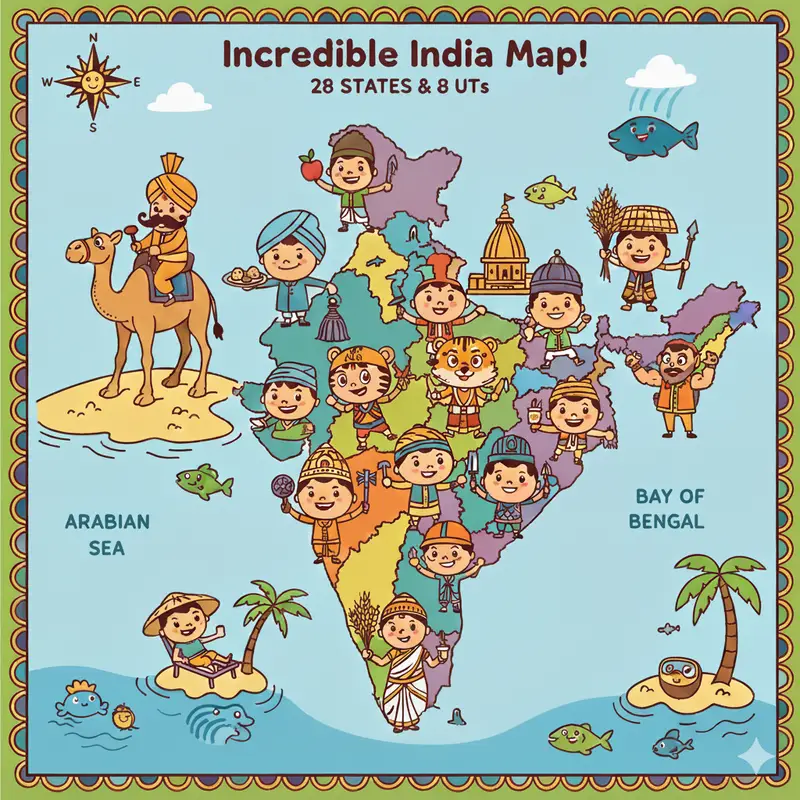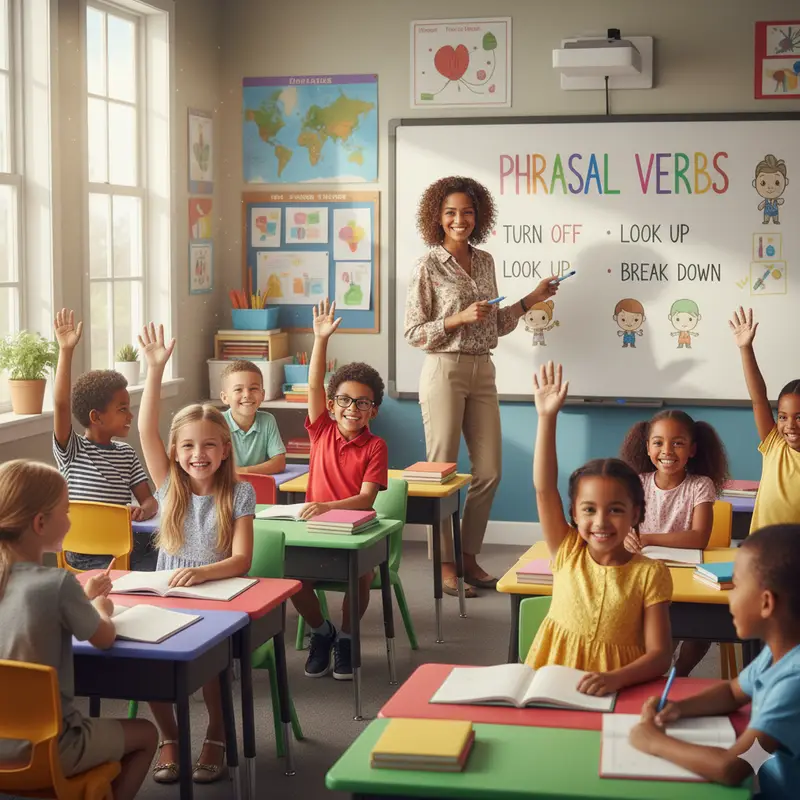Comprehensive Guide to Teaching Tenses
Introduction to Tenses
What Are Tenses?
Tenses in English tell us when an action happens. They help us know if something is happening now, has already happened, or will happen later. Understanding tenses is like having a time machine in language—letting you talk about the past, present, and future.
There are three main tenses:
1. Present Tense:-Actions happening now.
2. Past Tense:- Actions that already happened.
3. Future Tense:- Actions that will happen.
Each of these tenses can be simple, continuous, perfect, or perfect continuous.
1. Present Tense
Present Simple Tense
Explanation: We use the present simple tense to talk about habits, general truths, and actions that happen regularly.
Form: Subject + Base form of the verb (add ‘s’ or ‘es’ for he/she/it)
Examples:
The sun rises in the east. (A fact)
She drinks milk every morning. (A habit)
I walk to school every day. (A regular action)
More Examples:
Birds sing in the morning.
The Earth rotates around the sun.
Also Read:Making Multiplication Tables Fun: 6 The Power of Learning Through Songs
Present Continuous Tense
Explanation: Use the present continuous tense to talk about actions happening right now or around the current time.
Form: Subject + am/is/are + Verb (ing)
Examples:
I am eating an apple. (Happening now)
They are playing in the park. (Happening now)
She is reading a book. (Ongoing action)
More Examples:
We are studying for the test.
He is drawing a picture.
Present Perfect Tense
Explanation: The present perfect tense is used for actions that happened at an unspecified time before now. It connects the past with the present.
Form: Subject + has/have + Past Participle
Examples:
I have finished my homework. (At some point before now)
She has visited the zoo. (At some unspecified time)
They have eaten lunch. (We don’t know when exactly)
More Examples :
We have seen that movie.
He has lost his key
Present Perfect Continuous Tense
Explanation: This tense is used to describe actions that started in the past and are still continuing or have recently stopped.
Form: Subject + has/have + been + Verb (ing)
Examples:
I have been studying for two hours. (Started in the past, still happening)
She has been working on her project all day. (Ongoing action)
They have been playing outside since morning.
More Examples:
He has been reading the same book for weeks.
We have been learning English for three years.
2. Past Tense
Past Simple Tense
Explanation: The past simple tense is used to talk about actions that are finished and happened at a specific time in the past.
Form: Subject + Past form of the verb
Examples:
I played soccer yesterday. (Happened in the past)
She baked cookies last night. (Finished action)
They visited the museum last weekend.
More Examples:
We watched a movie last night.
He painted the fence yesterday.
Past Continuous Tense
Explanation: Use the past continuous tense to talk about actions that were happening at a specific moment in the past.
Form: Subject + was/were + Verb (ing)
Examples:
I was playing video games when the phone rang. (Ongoing action in the past)
They were eating dinner when I arrived.
She was sleeping during the storm.
More Examples:
We were watching TV all evening.
He was studying for his exam all night.
Past Perfect Tense
Explanation: The past perfect tense is used to talk about an action that happened before another action in the past.
Form: Subject + had + Past Participle
Examples:
She had finished her homework before dinner. (One action before another)
We had already left when it started to rain.
He had eaten lunch before you called.
More Examples:
They had watched the movie before the party.
I had completed the project before the deadline.
Past Perfect Continuous Tense
Explanation: This tense is used to describe an action that was happening over a period of time in the past before another action happened.
Form: Subject + had + been + Verb (ing)
Examples:
I had been working on the project for hours before I took a break. (Ongoing past action)
She had been studying all day before the exam.
They had been playing in the park before it started to rain.
More Examples:
He had been driving for hours before he stopped for gas.
We had been waiting for the bus for a long time.
3. Future Tense
Future Simple Tense
Explanation: The future simple tense is used to talk about actions that will happen later.
Form: Subject + will/shall + Base form of the verb
Examples:
I will play soccer tomorrow. (Action in the future)
She will visit her grandmother next week.
They will go to the beach on Saturday.
More Examples:
We will study for the test tomorrow.
He will paint the fence next weekend.
Future Continuous Tense
Explanation: Use the future continuous tense to talk about actions that will be happening at a specific time in the future.
Form: Subject + will be + Verb (ing)
Examples
I will be studying at 8 PM tonight. (Ongoing future action)
They will be traveling to New York next week.
She will be cooking dinner when you arrive.
More Examples:
We will be watching a movie at that time.
He will be playing basketball in the evening.
Future Perfect Tense
Explanation: The future perfect tense is used to talk about an action that will be completed before a certain time in the future.
Form: Subject + will have + Past Participle
Examples:
I will have finished my homework by 5 PM. (Completed future action)
She will have visited Paris by next year.
They will have eaten dinner by the time you arrive.
More Examples:
We will have completed the project by Friday.
He will have left by the time you get there.
Also Read: The Spooky Tale of The Magic Lantern
Future Perfect Continuous Tense
Explanation: This tense is used to describe an action that will be happening over a period of time in the future before another action or time.
Form: Subject + will have been + Verb (ing)
Examples:
I will have been working here for five years by next month. (Ongoing action in the future)
She will have been studying for three hours by the time you arrive.
They will have been playing for an hour by 6 PM.
More Examples:
He will have been living in this city for a decade.
We will have been traveling for 10 hours by the time we reach our destination.
Additional Exercises and Activities
1. Match the Sentence to the Tense
Sentences:
– I am swimming in the pool. (Present Continuous)
– They will go to the park. (Future Simple)
– She had eaten dinner. (Past Perfect)
Tenses:
– Past Simple
– Future Simple
– Present Continuous
– Past Perfect
Answer:
– I am swimming in the pool. – Present Continuous
– They will go to the park. – Future Simple
– She had eaten dinner. – Past Perfect
2. Fill in the Blanks with the Correct Tense
– She (play) ________ the guitar every day. (Present Simple)
– Answer: plays
– They (watch) ________ TV right now. (Present Continuous)
– Answer: are watching
– I (eat) ________ lunch before you called. (Past Perfect)
– Answer: had eaten
– He (finish) ________ his homework by 5 PM tomorrow. (Future Perfect)
– Answer: will have finished



